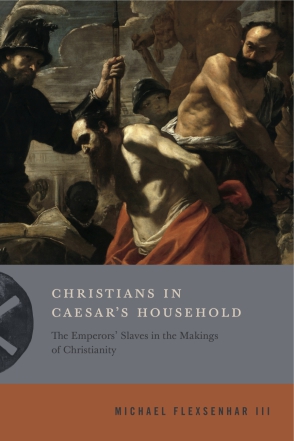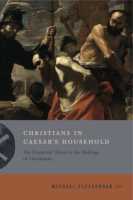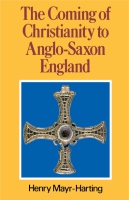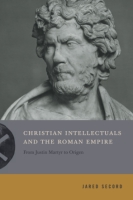
Christians in Caesar’s Household
The Emperors’ Slaves in the Makings of Christianity
Michael Flexsenhar III
Christians in Caesar’s Household
The Emperors’ Slaves in the Makings of Christianity
Michael Flexsenhar III
“Flexsenhar reassesses the evidence of Philippians; he de-romanticises comparative materials from the catacombs. The result is a short, readable, and persuasive masterpiece of deconstruction.”
- Description
- Reviews
- Bio
- Table of Contents
- Subjects
Scholarship in early Christianity has for centuries viewed Roman emperors’ slaves and freedmen as responsible for ushering Christianity onto the world stage, traditionally using Paul’s allusion to “the saints from Caesar’s household” in Philippians 4:22 as a core literary lens. Merging textual and material evidence with diaspora and memory studies, Flexsenhar expands on this narrative to explore new and more nuanced representations of this group, showing how the long-accepted stories of Christian slaves and freepersons in Caesar’s household should not be taken at face value but should instead be understood within the context of Christian myth- and meaning-making. Flexsenhar analyzes textual and material evidence from the first to the sixth century, spanning Roman Asia, the Aegean rim, Gaul, and the coast of North Africa as well as the imperial capital itself. As a result, this book shows how stories of the emperor’s slaves were integral to key developments in the spread of Christianity, generating origin myths in Rome and establishing a shared history and geography there, differentiating and negotiating assimilation with other groups, and expressing commemorative language, ritual acts, and a material culture.
With its thoughtful critical readings of literary and material sources and its fresh analysis of the lived experiences of imperial slaves and freedpersons, Christians in Caesar’s Household is indispensable reading for scholars of early Christianity, the origins of religion, and the Roman Empire.
“Flexsenhar reassesses the evidence of Philippians; he de-romanticises comparative materials from the catacombs. The result is a short, readable, and persuasive masterpiece of deconstruction.”
“The book will be helpful to anyone interested in ancient slavery and the myths associated with the rise of Christianity.”
“With an incisive, cogent, and creative application of memory studies to early Christian literature, Michael Flexsenhar III’s Christians in Caesar’s Household presents us with a critical picture of how and why early Christian authors felt it so strategically important to memorialize Christian imperial slaves. Flexsenhar’s work demonstrates aptly that early Christianity fashioned itself imperially, using slavery to shape its identity in ways that will be, without a doubt, everlasting.”
“Debunking a popular view that Christians in the days of Paul had already infiltrated the inner circles of imperial power, Flexsenhar argues instead that stories about the household of Caesar helped Christians map their identity through late antiquity. This book deftly demonstrates the importance of material culture for the interpretation of literary sources.”
“Christians in Caesar’s Household weaves a truly reformative story about Christian imperial freedpersons and thus about imperial acceptance of Christianity in the fourth century. Flexsenhar turns a critical lens on the usual triumphalist narrative, using both texts and archaeology to fundamentally shift our historical understanding to account for the brutality and messiness of slavery’s legacy in the Christian ascendancy.”
“[A summary of this book] cannot do justice to the scope of the evidence and the richness and depth of the analysis brought to bear by Flexsenhar on this fascinating tradition. Scholars of early Christianity will henceforth need to revisit the construct of the Roman imperial court as infiltrated by Christian slaves and freedmen with closer attention to the apologetic intent of the literary sources, the ambiguity of the epigraphy, and the realities of Roman slavery.”
“With its thoughtful critical readings of literary and material sources and its fresh analysis of the lived experiences of imperial slaves and freedpersons, Christians in Caesar’s Household is indispensable reading for scholars of early Christianity, the origins of religion, and the Roman Empire.”
“A valuable and compelling exploration of how a shard of fact was turned into a memory and elaborated into a legendary motif.”
“Flexsenhar’s monograph has provided a wealth of information about the history of imperial slavery as well as about how early Christians employed social memory to invent themselves.”
Michael Flexsenhar III is Visiting Assistant Professor of Religious Studies at Rhodes College.
List of Illustrations
Acknowledgments
List of Abbreviations
Introduction
1 Paul, the Philippians, and Caesar’s Household (Phil 4:22)
2 Paul, Peter, and Nero’s Slaves: Martyrdoms and Apostolic Acts
3 Rome’s Imperial Household in Christian Polemic and Apologetic
4 Christian Piety and a Martyred Slave of Caesar
5 Material Evidence for a Christian Imperial Freedman
6 Christians and Imperial Personnel in Rome’s Catacombs
Conclusion: The Memory of Imperial Slavery in Early Christianity
Appendixes
Notes
Bibliography
Index
Also of Interest
Mailing List
Subscribe to our mailing list and be notified about new titles, journals and catalogs.





